
RETURN TO HOME PAGE
FEEDBACK

|
October 2003
RETURN TO HOME PAGE FEEDBACK |
2003 San Francisco Mayoral Survey
|
On November 4, San Franciscans will head to the polls to elect a new
mayor. Having nearly completed his second four-year term, Willie Brown
is legally barred from serving another, so now we must find someone
who can fill his Ferragamos. Once the gubernatorial recall circus has
folded its tent, there will be less than one month before the mayoral
election. To help us all shift gears back to city politics, the Voice
submitted a questionnaire to the nine candidates for mayor whose
names will appear on the November ballot. The questions, and the
candidates' answers, are displayed here. Hope you find them edifying.
|
 Angela Alioto
Angela Alioto
www.angela4mayor.com |
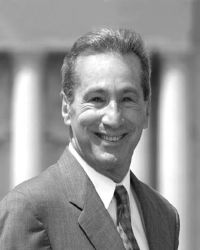 Tom Ammiano
Tom Ammiano
www.ammianoformayor.com |
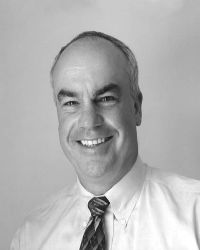 Michael Denny
Michael Denny
www.michaeldennyformayor.com |
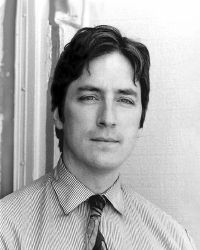 Matt Gonzalez
Matt Gonzalez
www.mattgonzalez.com |
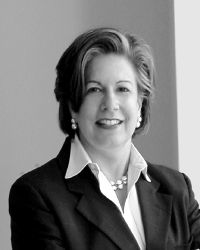 Susan Leal
Susan Leal
www.susanleal.com |
 Gavin Newsom
Gavin Newsom
www.gavinnewsom.com |
 Jim Reid
Jim Reid
www.sfmayor.com |
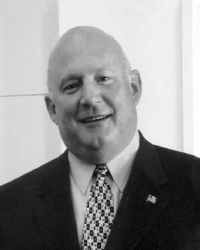 Tony Ribera
Tony Ribera
www.tonyribera4mayor.com |
 Roger Schulke
Roger Schulke
www.rogerformayor.com |
| PERSONAL AD: Write an ad for the Voice Class Ads, describing your unique qualifications for mayor. Feel free to include your job experience, family background, or other personal details. | Alioto: Native San Franciscan seeks office of Mayor. Eight years service on Board of Supervisors, two years as its President. Six years experience as successful civil rights trial attorney (owns own law firm), winning landmark decisions and settlements. Mother of four children, grandmother of two. Intelligent, resourceful, and absolutely ethical. | Ammiano: Mayoral Aspirant: Public schoolteacher, past School Board member, and current Supervisor eager to serve San Francisco residents. As a gay man, I bring 15 years of legislative and policy experience. I have worked with most city departments, and made reforms and improvements on numerous issues in the past decade. | Denny: Independent, principled, and practical candidate for San Francisco Mayor seeks voters who realize City Hall is our problem, not our solution. Voters must have a passionate love of personal and economic freedom, as well as responsibility. Those seeking special benefits from City Hall need not apply. | Gonzalez: I received my B.A. from Columbia University and my J.D. from Stanford Law School. Since my election to the Board of Supervisors, I have supported thoughtful Planning Commission reform, neighborhood notification of chain stores, local minimum wage and police reform. As President, I have restored vital services during the worst shortfall in our history. | Leal: City Treasurer seeks your vote for Mayor. Qualifications: former Supervisor, businesswoman, counsel to Congress and Assembly. Native San Franciscan, daughter of working-class Mexican immigrants. Priorities: Revive economy, create jobs, improve public schools. Endorsed by Noe Valley Democratic Club and Assemblyman Mark Leno. Favorite food: chocolate. Visit www.susanleal.com. Go Giants! | Newsom: My strengths include seven years of experience in the public sector and 14 years of experience in the private sector, a demonstrated willingness to tackle hard issues, strong management abilities, an ability to seek innovative solutions, and a commitment to gaining in-depth knowledge of the issues. | Reid: I am a building contractor. Homelessness and the Rent Control War are housing problems. Until we elect a mayor who plans to solve the homeless problem by building housing as SPUR suggests, this problem that harms all of us will grow and fester. Read my plans at www.SFMayor.com, www.habitatforthehomeless.org, and www.TransitVoter.org. | Ribera: I am running for mayor because this city has been so badly mismanaged, and I am the candidate with the experience and academic background to fix it. As Police Chief, I managed a budget of $220 million, and I reduced serious crime by 30 percent. I have a Ph.D. in Public Administration. | Schulke: Qualifications for mayor are a Financial M.B.A. and over 20 years experience in management, from high-pressure Air Force Emergency Room to running a business. I came to San Francisco as a starving student and have worked for major companies. I know firsthand the daily frustrations faced by both workers and business owners. |
| WILLIE BROWN: What have your impressions been of Willie Brown's performance as mayor? List some of the policies you found to be beneficial to San Francisco, and some you think may prove to be detrimental. (75 words) | Alioto: On the down side, the streets are dirty and people sleep on them because we don't have a homeless management plan. Public health and safety services cannot keep up with demand, and management and contracting for those services is out of control. On the up side, Muni is running a little better. | Ammiano: Overall, I am disappointed in the Brown administration. There were numerous cases of cronyism, mismanagement and missed opportunities. I agreed with his decision to hire Michael Burns, his increased funding for Muni and the Department of Public Health, and his efforts to negotiate labor's retirement contributions to balance the budget. I strongly disagreed with his land use policies, his refusal to reform the planning process, extensive hiring of special assistants, bloating of the budget, and his opposition to district elections and campaign finance reform. | Denny: Willie Brown was a politician, not a leader. He dramatically increased the size and cost of government, yet our problems have never been worse. He pandered to special interests, but did nothing to improve services or reduce the costs borne by taxpayers. Under Mayor Brown, we've had more political appointees and police escorts for "dignitaries" than ever. Unfortunately, we must now clean up the mess and pay the bills. | Gonzalez: I have great respect for Mayor Brown's long-standing commitment to civil rights. His determination to ensure equality for all people is unwavering, particularly during periods when extending rights to certain communities was unpopular. I appreciate Mayor Brown's ability to lobby Sacramento and Washington, D.C., for additional city funds. However, as the dot-com era raged, poor planning decisions were made. These choices have led to unbalanced growth and have had serious economic consequences for San Francisco. | Leal: Willie Brown is a brilliant legislator. He's a strong advocate for San Francisco at the national level. He's charismatic. City Hall and the Ferry Building are beautiful. But Willie Brown is not a strong executive, and he has not shown leadership on government accountability, appointments, clean streets, homelessness, our public schools, and many other important issues. But my campaign is about the future—making San Francisco a City of Opportunity once again. | Newsom: I am proud to have been appointed by this mayor to serve on both the Parking and Traffic Commission and the Board of Supervisors. I commend Mayor Brown for the diversity of his appointments to both commissions and city government posts. He has done more to ensure a diverse civic body than all previous mayors. He has also invested needed monies in drug, alcohol, and mental health services, and has brought universal health care to all children in San Francisco. I do believe that as a city we need to change the manner in which we deliver homeless services. Our current system is failing everyone, from the homeless to those who want to help the homeless. | Reid: I worked to recall Willie Brown two times. He hired almost 4,000 new city employees and our city got dirtier. He settled us with the budget deficits that the next mayor will have to deal with. He could have created a model for housing and treatment of the homeless, and the nation would have copied his model. He is a master politician and a disgrace. He proved that politicians do not solve difficult social problems. | Ribera: Mayor Brown has charisma, but he has no understanding of management. He has created a top-heavy inflated budget which needs to be reduced. He has created a government of "friends and foes," where nobody is held accountable. A prime example is his homeless policy (or lack of policy), where we spend $200 million a year and homelessness has increased every year. I won't go to Paris, I'll roll up my sleeves and go to work. | Schulke: Willie Brown has been one of the city's worst mayors. In his eight years, he increased the budget by 70 percent, and the city workforce by 30 percent, when we had population growth of 7 percent. His actions caused the loss of over 60,000 jobs and forced many large companies out of the city. The homeless problem has gotten worse, and he failed to stop the shutdown of the city by war protesters. |
| HOMELESSNESS: In 2002, 60 percent of San Francisco voters approved Proposition N--a welfare reform measure known as Care Not Cash--but its implementation has been stalled by the courts. Should the city work to enact legislation similar to Prop. N? Or would you adopt a different approach? | Alioto: My approach is legal and makes sense. SFCares (see angela4mayor.com) is a comprehensive management plan for homelessness. Prop. N was never really intended to be welfare reform, since it only affected one out of four General Assistance recipients, the ones who are homeless. So it would have affected 2,500 people maximum, in a city with maybe 15,000 homeless, and according to the city's budget analyst, could have cost $50 million more to implement. | Ammiano: I support the will of the voters. However, I know that punitive measures don't end homelessness or improve neighborhood quality of life. In lean economic times, we must ensure that our dollars are spent on programs that will work. Programs that have worked are those that provide housing with services—not shelters which turn people out onto the streets during the day. For this reason, I support the recently adopted Real Housing, Real Care measure. | Denny: Christian social justice demands we help the needy. But it also says the money must be paid back. We need to encourage that personal responsibility. Care Not Cash did not. It was a public health solution that did nothing for organizations providing genuine caring, charitable services. I told Supervisor Newsom to put "Care" into N; he should give tax credits to people who voluntarily contribute to homeless services. | Gonzalez: Philosophically, there is nothing wrong with the concept underlying Care Not Cash. Unfortunately, the proposition has two considerable flaws. First, as budget analyst Harvey Rose concludes, cutting General Assistance cannot cover expenses for the services mandated by the program itself. Second, Care Not Cash fails to address the causes of homelessness. The more effective approach is to provide assisted living arrangements, coupled with mental health and substance abuse treatment that ultimately lead to self-sufficiency. | Leal: Homelessness is a complex problem that involves families, seniors and the severely mentally ill. There's no quick fix. Reducing homelessness takes: 1) a Mayor who takes responsibility and provides hands-on, accountable leadership; 2) Real Care - cut cash grants but replace them with drug treatment, mental health and other services; 3) Regional cooperation - we can't shoulder the burden of the entire region's homeless; 4) Housing. We need more transitional housing and preventive measures to move people off the streets. | Newsom: I support implementing Care Not Cash as it was presented to and approved by voters in November 2002. On May 13, I presented a resolution calling for the Board of Supervisors to do so without delay. I believe that CnC's reforms will help increase substance abuse and mental health treatment services, create more affordable housing, and eliminate the incentive for homeless individuals who want cash rather than services to congregate in San Francisco. | Reid: In 1906, we built tiny houses and made homeowners out of the dregs of society who were made homeless by the fire. We need to do this again in 2004, on the clean parcels of land at the vacant Hunters Point Shipyard. We need to move all homeless services, including food kitchens, to the shipyard so that the homeless are drawn away from the central city. SPUR says, truly affordable housing is the solution to homelessness. | Ribera: I supported "Care Not Cash," and I think it would be a good first step in addressing a problem that has reached crisis proportions. However, we must also reorganize the entire way the city deals with homelessness. I would move from the "Continuum of Care" to a "Continuum of Solutions." My strategy would be based on sound management, aggressive outreach, and enforcing the law. | Schulke: San Francisco is importing homeless, not creating them, due to our over-generous cash benefits. Our compassion is being abused. We should limit care only to those who have lived in the city for at least one year. We should institute drug testing and eliminate services for those on drugs and for those who refuse work. Those groups getting money to help homeless should show results at taking people off the streets or lose their funding. |
| ECONOMY: Dot-com job losses, Sept. 11, and recession have all taken their toll on the city's financial coffers. How do you plan to deal with our current budget deficit? Give specific ideas for belt-tightening, boosting revenue, and cutting out waste. | Alioto: I will question the employment of anyone making over $100,000 a year (there are close to 3,000). Costly perks will be eliminated, like the hundreds of cars not needed for work. I will move city services back into City Hall to the maximum extent practicable, savings millions in office leases. City Hall is for the people's business, not parties. There will be a top-to-bottom financial and operational audit of every city department. | Ammiano: I'll facilitate job creation, including entry-level positions, through city construction, including the Hetch Hetchy and sewer system rebuilds, rebuilding S.F. General Hospital, and implementing the SFUSD Facilities Master Plan. Community-based planning will produce zoning changes that promote job growth, including around Mission Bay. I'll provide centralized assistance to small businesses for permits, licensing, loans, and taxes; require competitive bidding for all contracts; reform MBE/WBE programs to eliminate fraud; and incorporate performance-based budgeting, "best practices," and streamlining efforts that reduce waste. | Denny: We cannot boost revenue. City Hall already costs too much. Raising revenue will accelerate the rate people and jobs flee the city. So it's about belt-tightening and cutting waste. It's also about getting City Hall out of all but basic municipal services. The easiest and least political way to solve the budget problem is to simply tell each department they have 15 percent less. Department managers must manage or be replaced. | Gonzalez: Our city needs a new business tax. The current payroll tax punishes businesses for employing more people. We need to revisit the tax structure in order to promote job growth and increase revenues. During previous administrations, the mayor’s office was largely occupied with patronage positions. I am firmly committed to changing this practice. I believe the mayor’s office, as well as other city departments, must undergo structural reform to eradicate patronage and cut excess fat. | Leal: First, we can manage our resources much better. As treasurer and former chair of the Finance Committee, I've proven I manage money well and balance budgets. I've reformed my department to make it accountable and customer friendly. As mayor, I'll extend that same accountability to the rest of city government. Second, we need to improve the economy, bring back jobs, and grow our tax base to fund the vital services that San Franciscans deserve. | Newsom: We need to learn to do more with less, and to work smarter. The 311 non-emergency system, for example, can make government more cost-efficient by reducing the costs on the 911 system and tracking information more efficiently. In excess of $2 billion could be poured into the San Francisco economy and 15,000 jobs created simply by speeding construction of transit, infrastructure, and housing projects already in the pipeline. Creating jobs will assist our tax coffers and help pay for social programs. | Reid: Lay off city employees by charter amendment. There are many city employees who should be fired. Seniority is a VERY bad way to decide who should be laid off or fired. Many new workers should be made full-time and promoted. Customers of city services and other city employees should decide who should be fired or laid off. Department heads and managers would then do the firing. | Ribera: We have gotten to our current crisis in part because of Mayor Brown's increasing the budget by $2 billion and hiring an additional 4,000 employees. I would deal with the crisis by cutting the budget 6 percent over four years. I would do this by cutting the fat at the top, by reorganizing and consolidating. I would also implement a performance-based budget for every city department, where department heads would be held accountable. | Schulke: Under my administration the budget would be drastically reduced. A start would be the 4,000 useless political jobs created during the last eight years. Eliminate the $125 million in grants the city hands out to activist groups, and consolidate or eliminate city departments. Crack down on the abuses at Muni by increasing standards and eliminating rules that allow for undesirable work habits. |
| EDUCATION/KIDS: What role would you play in improving education and services to children? | Alioto: I support the school bond for capital improvements on November's ballot because there is mandated accountability in this one. I think one way to get parents more involved in the public schools is to revisit the issue of neighborhood schools, both as public policy and in court. I would like to see affordable housing targeted for teachers. | Ammiano: I'll increase financial and in-kind support for SFUSD and develop new revenue streams for the district; and work to expand affordable childcare programs, and commit to universal preschool for all 4-year-olds. I have proposed the Arts, Music, Sports, and Preschool for Every Child Charter Amendment for the March 2004 ballot, which will provide $60 million annually for these purposes. The measure has been endorsed by a majority of the Board of Education, the SFPTA, and the San Francisco First Five Commission. | Denny: It's not City Hall's job to educate or provide these services. That's the responsibility of parents and institutions they work with. As mayor, I would lobby the state to release San Francisco's public schools so they could be given to the educators who currently run them. Parents would have to pay, but the city could give tax credits to parents or anyone else who would pay an education bill. | Gonzalez: I support smaller schools. We must reconsider our schools’ philosophy regarding building community and providing structure for our children. In New York City, where small schools are prevalent, studies show that these schools are directly responsible for higher grade point averages, higher graduation rates, better attendance, and higher standardized test scores. Schools should be integrated with strong arts and sports programs. I also advocate increasing revenues from the city to the school district. | Leal: As mayor, quality public schools will be a top priority. We must be a stronger partner to our schools with coordinated services and after-school programs. We must attract and retain the best teachers and give parents opportunities for meaningful involvement. I worked with the Board to create a Public Education Trust Fund and put Proposition I--the preschool initiative--on this year's ballot. Check out my detailed preschool to community college education plan at www.susanleal.com. | Newsom: I will create a mayoral panel on student and school performance, and will initiate truancy prevention and school safety programs. I will make it a priority to generate more funds by attracting and aligning public and private resources. Specific strategies I will pursue to generate increased funding include (1) a push for private-sector involvement; (2) supporting the school bond that the SFUSD is planning on putting on the local ballot this November; and (3) reviewing, realigning, and reallocating city resources. | Reid: I would fund two experimental schools: the School of Creativity and the School of Innovation (see www.SFMayor.com under Education). We need to change the state constitution by voter initiative to take back our property taxes and responsibility for our schools. We need to completely overhaul our school system. The decisions affecting education need to be made by teachers, students, and parents, and then implemented by administrators, NOT the other way around. | Ribera: Kids, education, and families will definitely be a priority in my administration. I am supporting Proposition A (School Bond), and I anticipate a good working relationship with Dr. Ackerman and the School Board. I support neighborhood schools (I oppose the diversity index), classroom teachers, and after-school programs (including athletics). I believe that an investment in our youth is an investment in our future. | Schulke: Work to establish a voucher system that would give power back to the parents and allow for more school choice and competition. Our schools have become too political and need a major shaking-up. Basic education should be brought back, and social indoctrination should be eliminated. |
| DEVELOPMENT: Noe Valley is a neighborhood that thrives because of its mix of low-density housing and small family-owned businesses. "Big box" chain stores and "monster homes" are fighting words. How would you meet the city's housing and economic needs without diminishing the quality of life in its neighborhoods? | Alioto: I think we can build 20,000 new units of housing without adversely affecting any established neighborhoods. (See my housing plan at www.angela4mayor.com.) I will do it by prioritizing housing affordable to working families, with full community participation to avoid mistakes and costly delays, and emphasizing production, with density bonuses comparable to those currently enjoyed by non-profits. I agree that neighborhood-serving businesses should be preserved. | Ammiano: I am a strong community-based planning advocate, and believe residents must be allowed to identify and maintain important characteristics of their neighborhoods. My economic development plan intersects with this position; it relies on support for small businesses, rather than accommodating chain stores. Similarly, my housing plan calls for new housing at all levels: higher-density housing in transit corridors, and single-family dwellings in established neighborhoods. At all times, community-based planning remains central to a successful housing plan. | Denny: It's too bad our regulations are bad and only companies with expensive attorneys can get anything done, usually with special "considerations" our other businesses don't get. The best way to get rid of these chains is to not buy from them. But the poor and middle class who enjoy low prices these stores provide would suffer if not allowed. I say our S.F. merchants can compete with anyone, just take off our handcuffs. | Gonzalez: Recently, I introduced legislation at the Board of Supervisors that would provide local residents a voice whether to allow a chain store from moving into their neighborhood. With regard to housing, I support zoning constraints to conform to individual neighborhoods as well as the overall needs of our city. | Leal: Neighborhood involvement is key to our decision-making. The General Plan should be reinforced by neighborhood plans to provide long-term guidance. We need to develop more mixed-use projects in commercial districts and discourage single-story, single-use, and stand-alone commercial boxes. We need a fair and consistent planning process. I support selectively increasing density allowances directly on transit corridors with improved transit and neighborhood agreement and involvement. | Newsom: While it will be a priority of my administration to foster economic development, it is essential that we preserve the unique character of San Francisco's neighborhoods throughout the process. As mayor, I will direct the Planning Department to work closely with the community when crafting policies that respect the integrity of our neighborhoods. As mayor, I will address the housing crisis by expediting the 6,000 units of housing planned for Mission Bay, the 1,600 units planned for the Hunters Point Shipyard, and the 2,800 units planned for Treasure Island. | Reid: We need to build housing in every neighborhood, and the people in the neighborhood need to decide where and how it is built. See Neighborhood Affordable Housing Charter Amendment at www.SFMayor.com. New truly affordable housing needs to be built without parking and with deed restrictions preventing car ownership and severe penalties for violating the restriction ($1,000 fine). We need to build apartment houses on some corner lots, as there are in Pacific Heights. | Ribera: I am opposed to "Big Box" development in our neighborhoods. I will protect the character of our neighborhoods and the blue-collar housing that many of them supply. We have a tremendous opportunity to create neighborhoods with affordable housing in Mission Bay and the Hunters Point Shipyard. That should be our focus. | Schulke: Work to allow condominium conversions, and set zoning laws to preserve neighborhood character. Work to eliminate housing subsidies. Subsidies keep housing prices high and reduce affordable housing for the middle class. |
| LANDLORD/TENANT RIGHTS: In recent years, several ballot measures have sought to protect renters from eviction by putting limits on "tenancies-in-common" (where two or more people share the cost of a building by buying separate flats). However, these reductions may close the door to home ownership for some residents. What is your view on this issue? | Alioto: I agree that tenants should be allowed to purchase the buildings in which they live, but I also think we need to maintain our stock of affordable rental housing. I simply have not liked any specific proposal thus far. But I certainly think it is possible to satisfy both sides of this situation and see the need to make it a priority. | Ammiano: I reject the scenario that requires a choice between maintaining existing rental stock or home ownership when, in fact, BOTH are essential to address existing housing needs. I propose a comprehensive plan that includes first-time homebuyer assistance, market-rate and affordable housing, and a viable amount of rental stock. Because of limits on space availability, we must assess a variety of housing needs. It is only through a comprehensive housing plan that we can accomplish this. | Denny: All human rights start with property rights. The reason we have an affordable housing problem is because property owners do not have the freedom to develop their own property. City Hall's only job in real estate is to arbitrate disputes that cannot be solved by property owners and their neighboring property owners. | Gonzalez: I believe that the city needs to balance the interests of landlords and tenants. As Proposition 13 protects stable housing for homeowners, rent control plays its role in protecting tenants. Ultimately, it is important to equalize the assets of home ownership with individual renting rights. | Leal: I strongly support rent control and will fight efforts to repeal or weaken it. I opposed Prop. R in 2000 because it threatened tenants. But we must also expand home ownership opportunities for working San Franciscans, and for some that means buying into a tenancy-in-common. When all the occupants in a building agree to share the cost of purchase and no evictions result, we can realize the dream of home ownership for some families without hurting tenants. | Newsom: While renters must be protected, I would not support strict limits on tenancies-in-common. With the high cost of homes in the city, sharing the cost of a building is the only means by which some San Franciscans will ever have the opportunity to become homeowners. We certainly need to protect renters and build more affordable housing, but we do not want to close the door to home ownership for residents by creating strict limits on TICs. | Reid: As a building contractor, I believe that the only way that we will end the 25-year clash between landlords and tenants will be to supply the demand for housing. This would mean building 100,000 housing units over the next 10 years. I support the Neighborhood Affordable Housing Charter Amendment that would allow neighborhoods to locate and vote for where in their neighborhood they would build housing for those who live in the neighborhood. | Ribera: I will look for a more balanced approach from the Rent Board. We currently have about 25,000 vacant rental units in the city. We need to get them back on the market. I strongly support home ownership, be it tenancies-in-common, condos, or otherwise. | Schulke: Because we have housing subsidies, we need rent control to help the middle class. We should eliminate both so that rents and house prices will reach their natural balance. This was done in Berkeley, and prices eventually came down to levels below rent control. |
| LAW ENFORCEMENT: In the last year, headline-grabbing scandals and low conviction rates have focused criticism on the San Francisco Police Department and District Attorney's Office. What kind of changes, if any, would you advocate for these organizations? | Alioto: I have stated publicly on numerous occasions that my police chief will be a woman and a San Franciscan. I don't believe in "national searches" when we have qualified members of the force who have the talent and ability to serve in that capacity. | Ammiano: I have authored Proposition H to bring much-needed reforms to the SFPD, Police Commission, and OCC. I introduced it in response to the public's increased distrust of the police investigative process. Shared and increased appointments to the Police Commission will ensure diversity and eliminate political entrenchment. Increased investigatory authority by the OCC will expedite stalled cases of police brutality and related cases. | Denny: Proposition H is a start but doesn't go far enough to make a difference. The Office of Citizen Complaints should have two seats on the Police Commission. Until citizens can discipline offending officers, the problems will not go away. Regarding the District Attorney's Office, I think all candidates have their merits. Personally, I'm endorsing Bill Fazio because he understands personal freedom but has a great violent crime conviction record. | Gonzalez: I have introduced legislation to empower the Office of Citizen Complaints to compel evidence from the Police Department. This will considerably assist in their investigations. As a former public defender, I understand the importance of police accountability, which is why I support the police reforms outlined in Proposition H. It is important that a district attorney makes meaningful decisions regarding prosecutions and allocation of resources. Conviction rates are rarely an accurate measure of an effective DA. | Leal: The SFPD needs stronger, more professional leadership at the top and a mayor who will hold the police chief accountable. To restore integrity, I will conduct a nationwide search for our next chief, hoping that we can promote a qualified candidate from within. The DA is an elected position, but as mayor, I am committed to fostering a closer working relationship between the district attorney and the SFPD. | Newsom: The San Francisco Police Department needs to adopt and implement the recent recommendations recently issued by the Office of Citizen Complaints. It is in the interest of all our police officers, not to mention the public, that reports of police misconduct be handled in a prompt and timely fashion. Anything less is unacceptable. When elected, I will work in cooperation with the city attorney to ensure that the Police Department is responsibly meeting deadlines to turn over the appropriate materials to the OCC. | Reid: I would appoint Susan Manheimer, the former captain of the Tenderloin Task Force, to be police chief, and would campaign to get Hallinan out of office with an enlightened Term Limits Charter Amendment. | Ribera: Obviously, we need a new DA. I will reorganize the Police Department by starting with a strong commission. I will then go through a selection process for the chief's position. I believe we have plenty of talent in the department. I will revamp the disciplinary process to ensure accountability. The archaic Inspector's Bureau needs to be reorganized and brought up to date with 21st-century technology. I will restore public confidence in our Police Department. | Schulke: The problem is not the Police Department. It's a do-nothing district attorney. If people want change, elect a different district attorney, one who will actually do their job and prosecute criminals. |